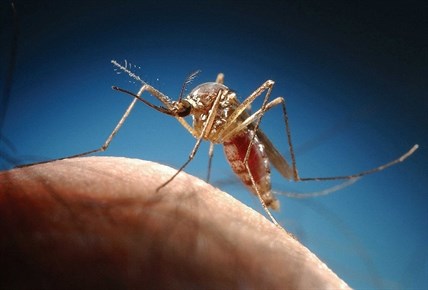
Image Credit: Wikicommons
August 25, 2014 - 5:36 PM
CACHE CREEK – Veterinarians diagnosed two sick horses Monday with West Nile Virus, the first confirmed cases in B.C. Monday afternoon.
Dr. John Twidale of the Canadian Veterinary Medical Association, confirmed the disease was present in the two horses, one in Cache Creek and the other in Ashcroft. The virus has spread across Canada infecting mostly wild birds and livestock, but strangely hasn't been detected in B.C. until now.
“We’ve been expecting to have West Nile (in the area) for the past five years. We know it’s moved steadily westward across the prairie provinces from Ontario to Alberta and it's also moved across the western states to Washington. So, we were the only corner left that hadn’t confirmed infection,” Twidale said.
The Lower Mainland-based veterinarian says one horse is on the mend while the other horse’s condition looks “doubtful" and may be destroyed.
In horses, the virus causes weakness and semi-paralysis of the hind legs.
The disease is spread through blood transferred by mosquitoes. There have been no cases of humans or other animals contracting the disease by touching the infected animal. Twidale says the virus is largely confined to birds.
Twidale recommends farmers vaccinate their horses and provide regular vaccine boosters. There is no cure for the virus. He says sometimes farmers will take a chance by risking infection in order to save on the cost of vaccination.
Information found on the B.C. Centre for Disease Control states the virus is the most widely distributed vector-borne disease through North America. Humans who are infected typically do not feel any symptoms, yet the disease can be serious in about 1 in 150 people who are infected.
To lower your risk of infection, protect yourself against mosquito bites by wearing long sleeves and bug sprays containing DEET.
To contact a reporter for this story, email gbrothen@infotelnews.ca, or call 250-319-7494. To contact the editor, email mjones@infotelnews.ca or call 250-718-2724.
News from © iNFOnews, 2014